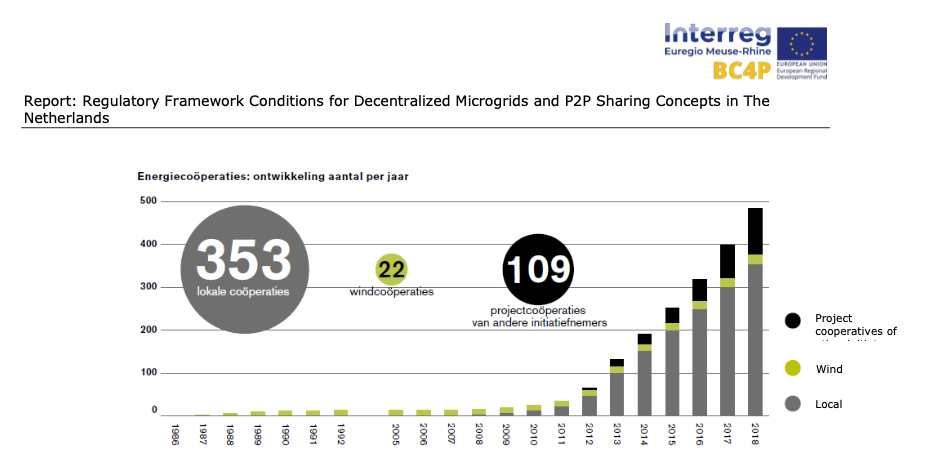Publication T1.1.4_Regulatory framework conditions for decentralized microgrids and P2P Sharing concepts
Traditionally the Dutch electricity market used gas and coal driven power plants. Although there where initiatives to move towards a more sustainable power production, it was the Urgenda foundation that forced the Government to move faster and to phase out coal.
Today, the Dutch electricity market is getting more mature, transparent, and liberalised. It enjoys a high degree of consumer confidence, strong (green) product innovation, and a willingness among consumers to pay a premium for green electricity albeit within limits (Mulder & Willems, 2019). A defining element of the Dutch power / generation market is the strict separation between network infrastructure ownership and the carrying out of commercial activities including energy generation, distribution, and retail (Electricity Act, 1998). As a result, the national high-voltage grid is ran by a single state-owned Transmission System Operator (TSO), TenneT, who delivers electricity to medium and low-voltage grids which are managed by eight heavily regulated and privately owned Distribution System Operators (DSOs) whom are territorial organised and form natural monopolies.
In Limburg, the electricity gas and electricity DSO is Enexis B.V.. To accommodate the unbundled system, a ‘balancing market’ consisting of Balance Responsible Parties (BRP) enables real-time balancing of electricity supply and demand. Examples of BRPs are the energy suppliers but a full register can be found on Tennet’s website1. The ‘retail market’ has been completely liberalised since 2004, however 80% of the market is concentrated by Essent, Vattenfall and Eneco. Energy prices are relatively homogenous and market competition is based on product innovation rather than price (Mulder & Willems, 2019).
Electricity, gas and heat markets are regulated and monitored by the autonomous ‘Netherlands Authority for Consumers and Markets’ (ACM), who oversees competition, regulates actors (including TSOs, DSOs and suppliers), and enforces consumer protection laws. Important regulatory activities include granting electricity supply permits and monitoring the retail price of electricity and heat.

